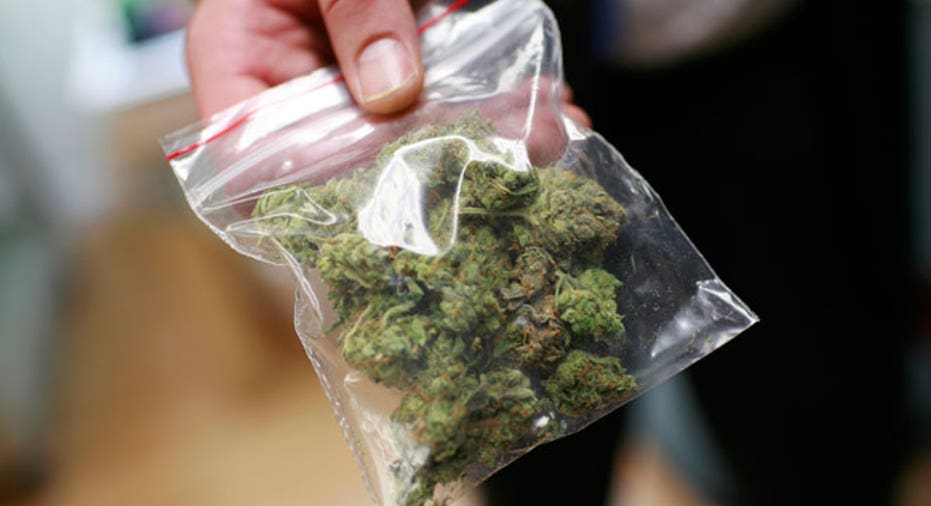5 Surprising Realities of Legal Weed

If you build it they will come has clearly been the case for small businesses in Colorado, one of the first states to legalize the recreational use of marijuana. But the demand, which has outstripped many lofty expectations, is not the only thing small business owners in the pot gold rush are surprised about.
“The demand and growth has been a huge surprise,” says Bob Eschino, co-founder of Medically Correct in Denver, Colorado, which makes a line of cannabis infused chocolate bars called Incredibles. “I’ve never seen anything like this and I’ve owned a business for the last 15 years.”
Selling 40,000 chocolate-marijuana bars a month
Colorado and Washington, the first states to legalize recreational marijuana, could be called the U.S. guinea pigs on the business of cannabis. While many states are resistant to this new industry (and it is still illegal on the federal level), companies growing and selling marijuana and ones that support them are seeing so much demand they can hardly keep up.
Consider Medically Correct. According to Eschino, his company, which supplies medical dispensaries in Colorado, is selling 40,000 chocolate-marijuana bars a month and doesn’t have enough of the pot ingredients to meet the demand. Medically Correct’s chocolate bars sell for $6.00 at the medical dispensaries and almost $10 in the retail market.
Banks not cashing in
While the demand is huge, Eschino says that’s not the only thing that caught him off guard about his business. Given the size of the market and the opportunity to profit, the lack of interest from banks to lend to marijuana businesses is eye opening, he says. In February the U.S. Department of Justice and the Financial Crimes Enforcement Network, a unit of the U.S. Department of Treasury, gave banks guidelines for working with legal marijuana businesses, yet financial institutions are still resistant to the industry.
“We were hoping the statements from the Federal government would have some teeth,” says Eschino.
But investors aren’t avoiding this business. Eschino says he gets cold calls on a regular basis from venture capitalists, angle investors and others looking to get in on the pot gold rush.
“Everybody wants to get into the business, but they come in and undervalue our company,” he says.
Don’t say it’s not your father’s weed
For Peter Johnson of Colorado Green Tours, which gives both consumers and investors tours of the Colorado pot business, the client demographic has surprised him. Most people would assume people visiting Colorado because of the pot industry would be twenty-something year olds looking to legally get high. But it turns out, a lot of the clientele signing up for the tours, which start out at around $200 and can get much pricier, are baby boomers.
“The demographic is considerably older than I had assumed it would be prior to doing research,” says Johnson. “There are an awful lot of old hippies that are very happy to live to see this day.”
And it’s not only the baby boomers that want a tour of this up-and-coming business. Johnson says he also gets a lot of interest from investors, and is somewhat surprised larger companies aren’t trying to cash in as of yet.
“This is a very large and now pretty lucrative market,” he says.
That was quick
Travis Howard, co-founder of Green Dream Health Services in Boulder, Colorado, trained himself early on to expect the unexpected when it comes to legal marijuana, but one area that he was caught off guard by was the speed in which the state moved to allow the sale of recreational marijuana.
“We knew it would go recreational but thought it would be closer to 2016,” says Howard, whose company operates dispensaries and provides consultations on getting into the pot business. “We thought we would get five to seven years of the medical business under our belt before adding something else to the plate.”
Government’s take
Another area that surprised Howard is the sales tax that has been imposed on the purchase of pot. According to Travis, in Boulder the total tax is 36% and in Denver it’s in the high 20% range, a far cry from the 6% sales tax in Denver and 8.5% sales tax in Boulder. Howard had figured it would move to 10% or 15%, but not as high as it is.
“It’s the first time I’m hearing from the grow supply stores and nutrient supply stores that the black market growers are thinking there’s an opportunity for them to get back into the industry,” says Howard, noting because of the tax rate an 1/8 of weed will cost $60 to $70 legally, but $40 to $50 on the black market.
While many small business owners are waiting for the day it will be legal in their state, running a pot business requires a lot of capital, which the banks aren’t willing to lend. Because of that, Eschino of Medically Correct says small business owners have to think long and hard before they make a foray into this industry.
“Right now it’s difficult unless you have a whole bunch of disposable income,” he says. “You get no line of credit and even though it’s a profitable business every penny goes back in. We can grow quicker if we get access to more capital, but we can’t.”



















